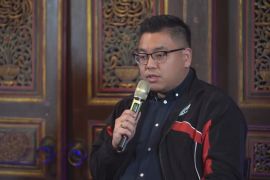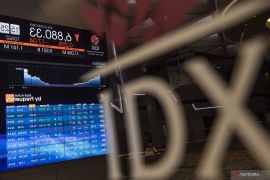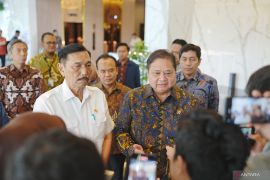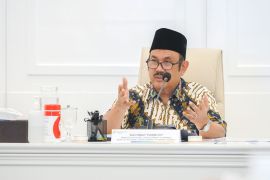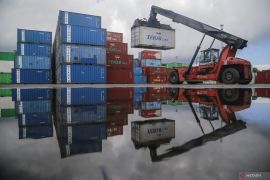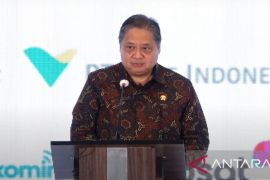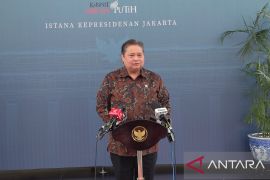Economist Abra Talattov of the Institute for Development of Economics and Finance (Indef) made the statement based on the Central Bureau of Statistics (BPS) data.
The BPS has just released economic growth in the second quarter of 2017, which reached 5.01 percent, which is relatively stagnant as compared to that in the first quarter of 2017.
"By looking at the economic growth in quarter 2 (Q2), the 5.2 percent growth target is difficult to achieve," Abra stated when contacted by ANTARA in Jakarta on Monday.
In the second quarter of 2017, household consumption grew only 4.95 percent year-on-year (yoy) or just 0.01 percent higher than the previous quarter. In fact, in the previous year, consumption growth in the second quarter was much higher than the first quarter, he added.
"Consumption of households that has been the main driver of economy is slowing, reflecting the weakening purchasing power of the people," Abra revealed.
Abra added that the weakening indicator of public purchasing power can be seen from the slowing growth of the trade sector from 4.96 percent in the first quarter of 2017 to only 3.78 percent in the second quarter of 2017.
Similarly, growth in the manufacturing sector slowed from 4.24 percent in Q1 of 2017 to 3.54 percent in Q2 of 2017.
"During the fasting month and Eid al-Fitr, the sales is usually on the rise," Abra noted.
BPS noted that improving investment performance or Gross Fixed Capital Formation (PMTB) has contributed to the economy in the second quarter of 2017 to grow by 5.01 percent (year-on-year). The growth of PMTB is driven by investment in buildings, vehicles, and other equipment.
Investment in the form of buildings during the period grew in line with the increased activity in the construction sector such as infrastructure development.
In addition, investment is also supported by the realization of central government capital expenditure in the 2017 state budget of Rp35, 7 trillion, an increase of 4.36 percent over the same period last year. (*)
Editor: Heru Purwanto
Copyright © ANTARA 2017
